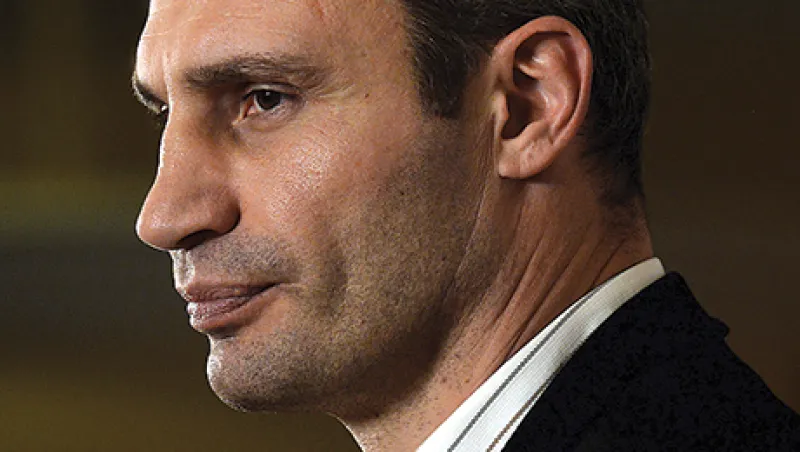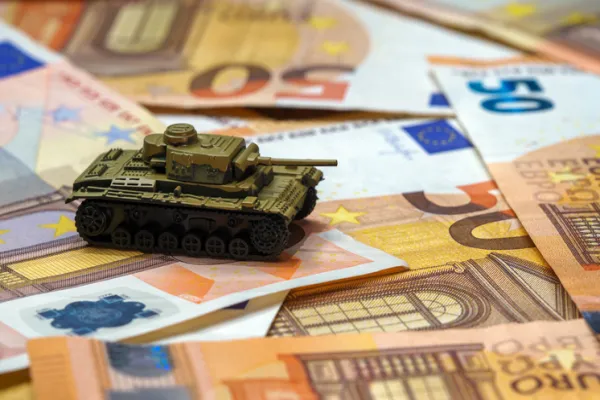Vitali Klitschko has defended his heavyweight boxing titles 11 times. Now he wants to contend for a tougher crown: president of his native Ukraine. The fighter, who still holds the World Boxing Council’s championship belt, has leapt to prominence as a leader of the massive demonstrations in the Ukrainian capital, Kiev, against President Viktor Yanukovych’s rejection of a cooperation deal with the EU. At one point Klitschko interposed his 6-foot, 7-inch frame between protesters and riot police. By mid-December he was flying to Paris to meet French Foreign Minister Laurent Fabius and reportedly receiving tacit backing from German Chancellor Angela Merkel.
“From all the leaders who have appeared in the streets, Klitschko is the most charismatic,” says Oleksandr Demianchuk, head of the political science department at the National University of Kyiv–Mohyla Academy. Even if Yanukovych survives the current turmoil, he faces a new election in 2015. Klitschko, 42, announced his candidacy in early December.
Dr. Ironfist, as Klitschko’s admirers call him, is no political novice. He ran two losing campaigns for mayor of Kiev. His Ukrainian Democratic Alliance for Reforms party — whose acronym, UDAR, means “punch” — holds 42 of 450 seats in Ukraine’s parliament. The party has gathered a seasoned team of activists formerly attached to Viktor Yushchenko, who swept to the presidency after leading Ukraine’s Orange Revolution in 2004.
But before the recent people power explosion, few observers saw Klitschko as chief executive material for a nation of 45 million. “To put it mildly, he lacks the intellectual and political preparation at this point,” Demianchuk says. The occupation of downtown Kiev has offered few policy specifics for Ukraine’s future, and UDAR’s website hews largely to generalities like “break the corrupt system” and “join the European community.”
Klitschko also risks eclipse by an established political star: Yulia Tymoshenko, who co-captained the Orange Revolution with Yushchenko, served as prime minister, then narrowly lost the presidency to Yanukovych in 2010. She received a seven-year jail term shortly afterward for alleged abuse of office. The EU’s demand that she be freed was a key element scuttling its deal with Yanukovych, who in late December cosied up to Moscow by signing a deal with Russian President Vladimir Putin that will see the Kremlin buy $15 billion worth of Ukrainian government bonds. But she’s likely to be out and grasping for power again if Yanukovych weakens much further.
Klitschko, a native Russian speaker and the son of a Soviet Air Force general, has one advantage over Tymoshenko: He seems to have a positive image in Ukraine’s Russified east and south, where the fiery ex-premier is mistrusted. Still, the champion isn’t pushing too hard for the Orange Princess’s freedom, Demianchuk notes.
Get more on emerging markets.






